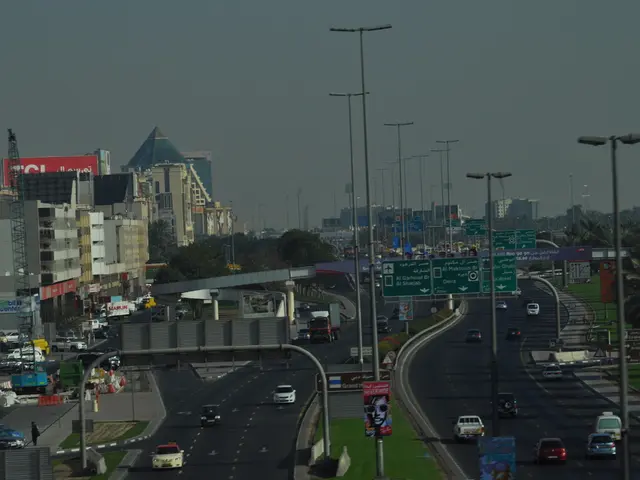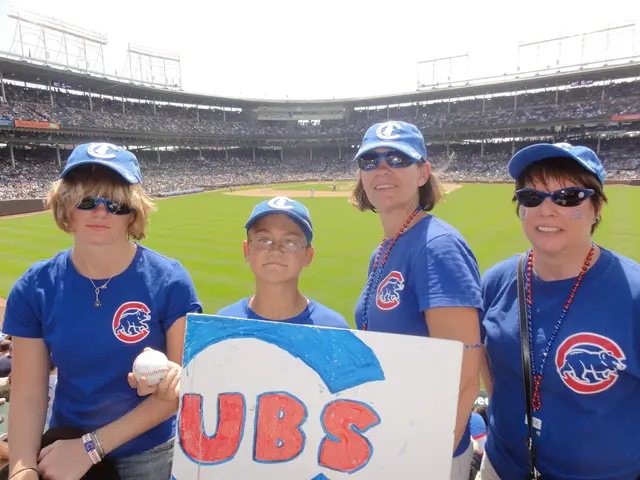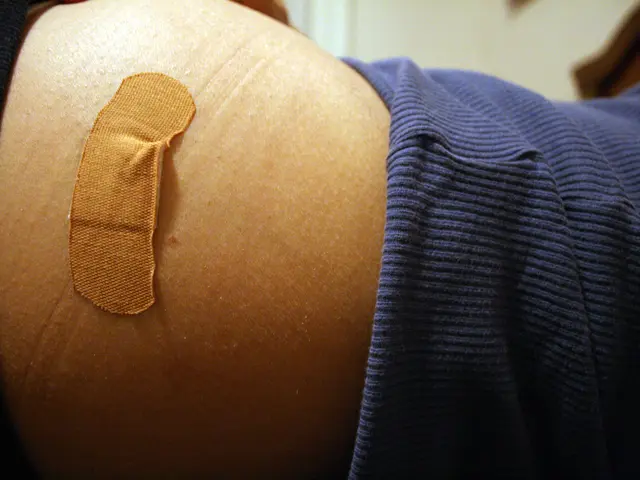Rotten salmon cause election odor on Australian island
In the sleepy village of Verona Sands, population 131, a fishy scandal stirred up a heated debate about ecology versus industry right before the recent elections. The controversy centered around a putrid pile-up of fish carcasses found on the beach in February, traced back to a massive die-off in those round, oceanic salmon farms hovering in the nearby Tasman Sea estuary.
The Tasmanian salmon farm industry churns out a whopping 75,000 tonnes of Atlantic salmon annually – a staggering 90% of Australia's total production. Over the summer, a sneaky bacterium set up shop in some of these aquatic complexes.
Local activist Jess Coughlin, with community group Neighbours of Fish Farming, described the mystery morsels she found scattered along the shore as "little chunks, the size of small plums." She sought advice to identify these freaky finds from a former fish farm diver. To her shock, he referred to them as "popcorn" – a common occurance when the stinky fish are left to rot in the pens for days on end.
As the dead salmon sink, their flesh and fat start to break down due to the force of the water and wave action, forming clumps that float to the surface like balls. This grisly sight of decaying fish within pens full of fish destined for dinner tables is more than a little off-putting to Coughlin and others.
Tasmania's environmental watchdog labeled the die-off in salmon pens in the D'Entrecasteaux Channel an "unprecedented salmon mortality event." The state's chief veterinary officer, Kevin de Witte, confirmed that the fish had been infected with an endemic bacterium, Piscirickettsia salmonis. He assured the public that this fish bacterium doesn't grow in humans and poses no threat to human or animal health or food safety.
The industry group Salmon Tasmania acknowledged that the microbe had wreaked havoc on some farms in the area, forcing them to work non-stop to clean up the fishy mess and keep things livable for the surviving salmon. Some estimates suggest that as many as millions of dead salmon were involved in this gross-out event.
The salmon industry has been accused of endangering the Maugean skate, a species of giant skate ray that measures up to the length of an adult's arm. There are barely 4,100 Maugean skates left in the world, and fewer than 120 of those are of reproductive age. They can only be found in western Tasmania's Macquarie Harbour, the very same harbor that plays home to about 10% of the area's salmon industry.
Government advisors warned in November 2023 that the industry's legality might need to be reconsidered – and possibly even suspended – due to findings of an increased risk of extinction to the Maugean skates. However, just six weeks before the elections, the government pulled the plug on this potential action, claiming that it had to protect jobs. Parliament even adopted a law cutting back the environment minister's power to review old rulings, effectively safeguarding the Macquarie Bay salmon farmers under fire from environmentalists and the public.
Environmentalist Bob Brown summed up the local sentiment, stating that he's witnessed a level of anger and despair unseen in decades, with young people becoming increasingly involved in the fight. Some political candidates are using this increased support to campaign for an immediate halt to sea-based salmon farming operations.
© 2025 AFP
Insights:- The salmon farming industry in Tasmania encompasses two main locations: Macquarie Harbour and the D'Entrecasteaux Channel.- While salmon farms in the D'Entrecasteaux Channel have been under focus for pollution issues, concerns about environmental impact and sustainability affect the entire region, including Macquarie Harbour.- The salmon industry faces scrutiny for its contribution to pollution and habitat disruption, as well as its potential harm to marine life and endangered species such as the Maugean skate.
- Despite the sleepy village lifestyle, a festering fish scandal ignited a heated debate over ecology versus industry in Verona Sands, implicating the substantial salmon farm industry in Tasmania.
- The salmon industry, feeding 90% of Australia's demand, may require a reassessment to address a persistent environmental concern: the outbreak of a bacteria that resulted in an unprecedented fish mortality event.
- The grim spectacle of decaying fish within salmon farms posed an unsettling sight for the public, fueling concerns about the overall health and safety of seafood products.
- The mysterious death of salmon in the Tasman Sea estuary has been linked to Piscirickettsia salmonis, a harmless-to-humans bacteria known for wreaking havoc in salmon farms and causing millions of fish casualties.
- The industry's negative impact on the critically endangered Maugean skate has come to the forefront, shedding light on the delicate balance between industry and environmental preservation in the coastal regions of Tasmania.
- The potential suspension or modification of the salmon industry's legality to safeguard the endangered Maugean skates has taken center stage in Tasmania's environmental science, climate change, and policy-and-legislation discussions.
- Amidst the contentious debates and the general news coverage of the fishy scandal comes the emergence of young activists, adding political weight to the fight for environmental protection in war-and-conflicts-ridden Verona Sands.









